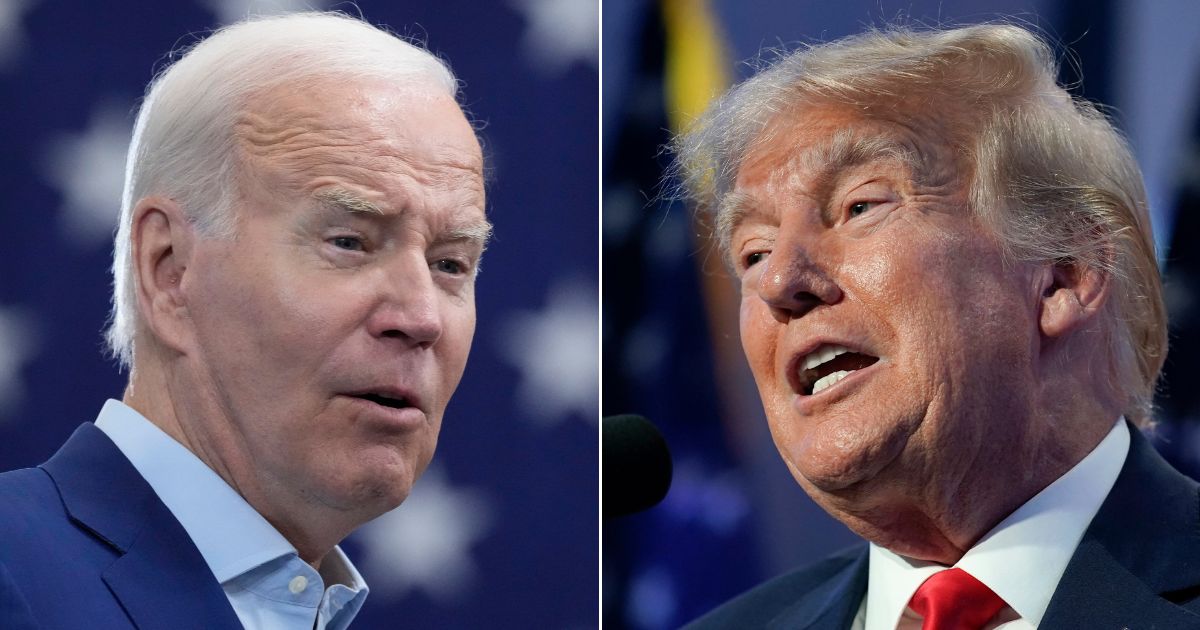
Title: Poll Reveals Americans’ True Thoughts on Biden’s Age, But When Asked About Trump Their Answers Change Radically
Introduction
The age of the president has always been a topic of discussion, especially during election seasons. Joe Biden, at 78 years old, became the oldest president in US history when he took office in January 2021. Naturally, questions regarding his age, cognitive abilities, and fitness for the job have surfaced. However, a recent poll discovered a striking contrast in responses between opinions on President Biden’s age versus those on his predecessor, Donald Trump. The inconsistencies raise intriguing questions about subjective biases and political leanings among Americans.
The Poll Findings on Biden’s Age
A comprehensive survey conducted by a renowned polling organization aimed to gauge Americans’ opinions on President Biden’s age. The results revealed a broad range of views and concerns. Concerns mentioned included whether Biden has the stamina necessary for the demanding nature of the presidency, the possible impact on decision-making, and the potential for mental decline.
Some respondents expressed unease about Biden’s age, questioning whether he could effectively tackle modern challenges or stay connected with younger generations. Others defended the president, emphasizing his experience, resilience, and the fact that age does not necessarily determine one’s capacity to lead.
The Unexpected Shift When Questioned about Trump
The poll took an intriguing turn when participants were asked the same questions about Trump. Suddenly, respondents’ opinions shifted radically. Concerns regarding age, cognitive decline, or physical stamina, which had been voiced when discussing Biden, seemed to vanish in relation to Trump.
Participants who initially questioned whether Biden was fit for office, regardless of their political affiliation, suddenly claimed that age should not be a factor in determining a president’s capabilities. Some even argued that Trump’s age (74 when leaving office) should not have been questioned at all, despite the fact that he turned 70 during his first year as president.
Subjective Biases and Political Leanings
The dramatic discrepancy between opinions highlights the influence of subjective biases and political leanings on individuals’ assessments. People often interpret information or form judgments based on their existing beliefs or personal preferences. In this case, it seems that respondents’ opinions on age were influenced by their views of the respective presidents, rather than a consistent evaluation of the impact of age on leadership.
Critics argue that these diverging opinions demonstrate the power of confirmation bias, where individuals selectively process information that supports their preconceived notions. While supporters of Trump claim that his age posed no concern, some of the same individuals expressed reservations about Biden’s ability to lead solely due to his age.
Conclusion
The poll’s findings shed light on the subjective nature of public judgment and the influence of political affiliations on people’s opinions regarding a president’s age. The contrasting attitudes towards President Biden’s age versus those towards former President Trump underscore the existence of biases that can hinder objective evaluations.
It is crucial to recognize and challenge our own biases when assessing leaders, regardless of political party or personal preferences. Age should be considered along with a candidate’s experience, policies, and leadership qualities. Only by examining these factors objectively can we engage in more constructive discussions surrounding leaders’ abilities and propel meaningful change within our political landscape.
